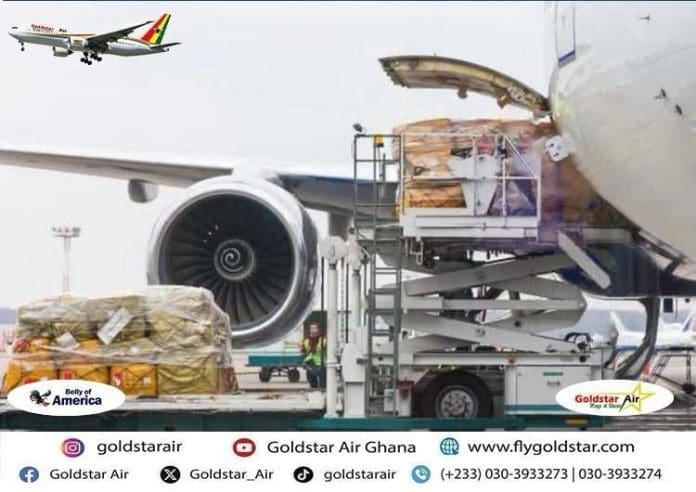Global air cargo rates have stabilized at lower levels compared to the same period last year, with worldwide average rates fluctuating between $2.41 and $2.44 per kilogram during the week of September 15-21, 2025, according to WorldACD Market Data.
The latest five-week analysis reveals that current rates remain consistently below previous year levels, which ranged from $2.51 to $2.57 per kilogram during the corresponding period in 2024. This downward trend reflects broader market normalization following elevated rates experienced during recent years.
North America emerged as the strongest performing region, recording a 6 percent increase in chargeable weight over the past five weeks alongside a 2 percent rate increase. The region’s capacity expanded by 1 percent, indicating robust demand growth that outpaced supply additions.
African markets demonstrated resilience with a 5 percent increase in chargeable weight despite a 2 percent decline in capacity. The continent managed to achieve a 1 percent rate increase, suggesting effective demand-supply balance management during the reporting period.
Europe experienced similar volume growth, with chargeable weight rising 5 percent while capacity decreased by 1 percent. However, European rates remained flat, indicating competitive pressure despite strong demand fundamentals.
The Asia Pacific region showed modest performance with chargeable weight increasing just 1 percent while capacity remained unchanged. Rates improved marginally by 1 percent, reflecting the region’s measured market recovery.
Central and South America recorded a 3 percent increase in chargeable weight against a 3 percent capacity decline, resulting in a 1 percent rate improvement. The region’s performance suggests tightening supply-demand dynamics.
Middle East and South Asia markets remained essentially flat across all metrics, with minimal changes in capacity, chargeable weight, and rates. The region faced challenges with year-over-year rate comparisons showing significant declines.
The data, compiled from over 500,000 weekly transactions across WorldACD’s network of more than 15,000 forwarders globally, provides comprehensive market coverage spanning local operators to major international freight companies.
Regional trade lane analysis revealed varying performance patterns across key corridors. North American routes to Europe and Asia Pacific showed particular strength, while Middle East connections to Asia Pacific faced headwinds.
Earlier WorldACD reports during 2025 indicated that average contract rates had diverged from spot rates by mid-year. By June, average contract rates of $5.28 per kilogram stood approximately 13 percent higher than spot rates of $4.66 per kilogram, reflecting different market dynamics.
The current market environment contrasts sharply with conditions observed in late 2024 and early 2025, when global spot prices remained more than 20 percent above year-earlier levels despite seasonal adjustments.
Industry analysts note that the current rate environment reflects market maturation following years of elevated pricing driven by capacity constraints and supply chain disruptions. The stabilization suggests more predictable operating conditions for both shippers and carriers.
The Middle East and South Asia region’s challenges appear particularly pronounced in year-over-year comparisons, with some trade lanes experiencing rate declines of up to 21 percent compared to the same period in 2024.
Capacity management strategies vary significantly across regions. While some markets like Africa and Europe reduced available capacity, others like North America expanded slightly to meet growing demand.
The air cargo industry continues adapting to post-pandemic demand patterns, with e-commerce growth, pharmaceutical shipments, and high-value manufacturing goods driving volume across different regional markets.
The industry faces ongoing challenges including fuel price volatility, geopolitical tensions affecting trade routes, and seasonal demand variations that historically influence air cargo performance.
WorldACD’s comprehensive data collection methodology covers 14 different product and priority categories, providing detailed insights into market segments ranging from general cargo to specialized shipments requiring expedited handling.
The current market conditions suggest that air cargo operators are successfully managing capacity deployment to match demand patterns, though profitability pressures remain evident in competitive pricing across most regions.
For African markets, the positive volume and rate performance indicates growing trade connections and effective market positioning despite global headwinds affecting other regions.
The stabilization of global rates around current levels may provide more predictable cost structures for businesses dependent on air cargo services, particularly those involved in international trade and time-sensitive logistics.
As the air cargo market continues evolving, regional performance variations highlight the importance of localized strategies while maintaining global network connectivity essential for international commerce.
Source: newsghana.com.gh











